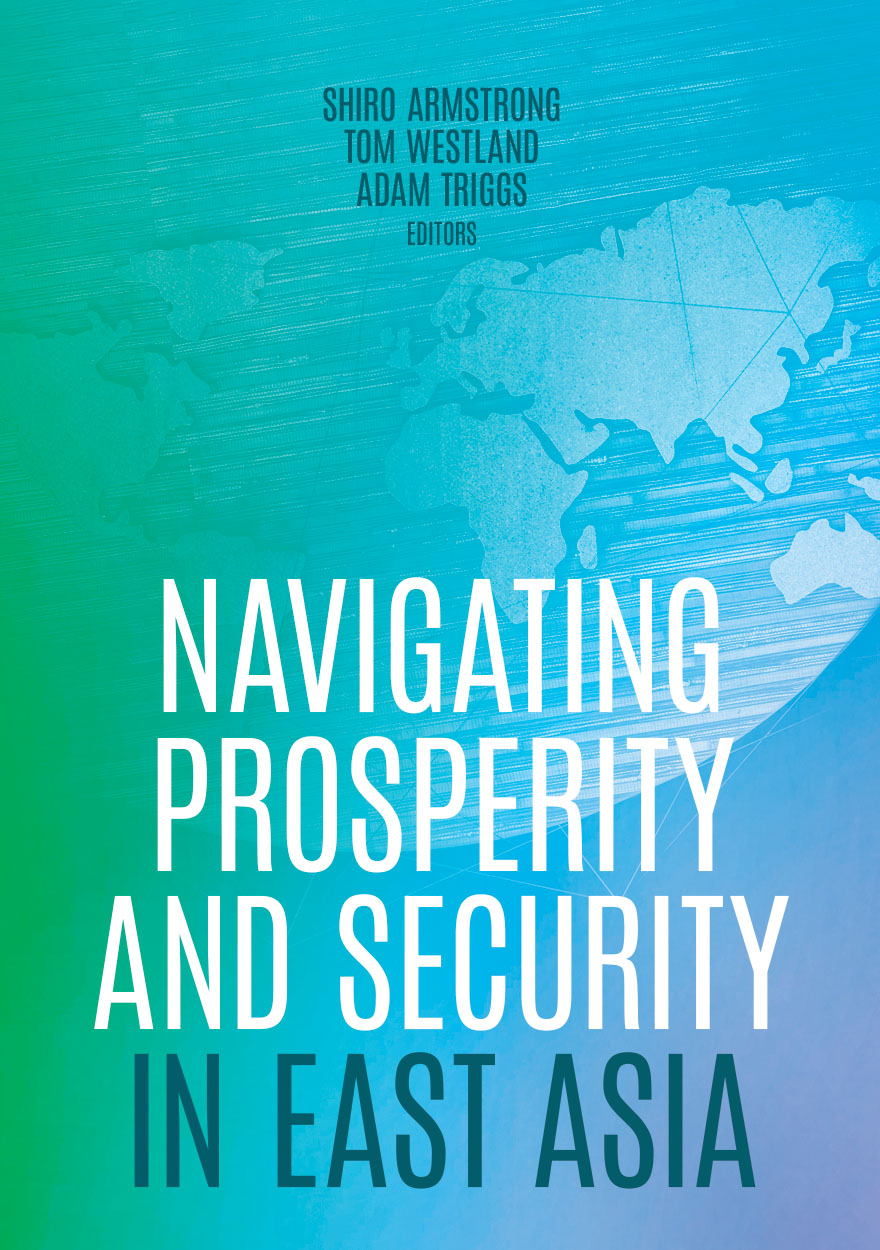Adam Triggs
Adam Triggs is a visiting fellow at the Crawford School of Public Policy, The Australian National University, and a non-resident fellow at the Brookings Institution, Washington, DC.

Navigating Prosperity and Security in East Asia »
Publication date: May 2023
The world’s two largest economies, the United States and China, are locked in a trade war, complicating policy choices internationally. These choices are sharper for the countries of East and Southeast Asia than they are elsewhere, because the multilateral rules-based economic order on which East Asian economic integration and cooperation is built is under threat.
Economic policy has never been separate from security considerations. For decades, the national security risks inherent in economic exchange have been mitigated under a US-led system that allowed the strengthening of economic ties, including between China and the rest of the world. But economics and security are increasingly entangled in a way that is damaging to both, creating a dangerous trade-off. Now, as global uncertainties grow, the risks of international exchange—rather than its benefits—are beginning to dominate the calculus for some policymakers.
Against this backdrop, how can Southeast Asian countries and US allies in Asia balance their security interests and their economic interests? And how can these countries, individually and collectively, broaden their policy options and deepen economic integration? This volume investigates the domestic and international dimensions of these questions.

Achieving Inclusive Growth in the Asia Pacific »
Edited by: Adam Triggs, Shujiro Urata
Publication date: August 2020
The world’s developed economies are experiencing a sharp backlash against globalisation, and it appears to be contagious. Will Asia catch it next? Asia has seen spectacular growth in recent decades. It has benefited substantially from global trade, finance, openness and the rules-based international order. But much of the growth Asia has enjoyed has not been shared. It has not been inclusive growth. Inequality in Asia is among the highest in the world. The richest man in Vietnam now earns more in a single day than the poorest person does in a decade. Asia has far to go in making its societies more inclusive to women, ethnic minorities and the LGBT community. How can Asia reduce inequality? What are the forces that determine whether growth in the Asia Pacific is inclusive or not? And what can be done to make Asia’s growth more inclusive in the future? This book brings together the region’s leading thinkers to explore how to change Asia’s trajectory, before it is too late.
The Pacific Trade and Development (PAFTAD) conference series has been at the forefront of analysing challenges facing the economies of East Asia and the Pacific since its first meeting in Tokyo in January 1968.



